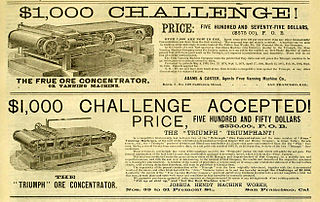Related Research Articles

The Executive Office of the President (EOP) comprises the offices and agencies that support the work of the president at the center of the executive branch of the United States federal government. The EOP consists of several offices and agencies, such as the White House Office, the National Security Council, and the Office of Management and Budget.

Michael Makoto "Mike" Honda is an American politician and former educator. A member of the Democratic Party, he served in Congress from 2001 to 2017.

The United States Institute of Peace (USIP) is an American federal institution tasked with promoting conflict resolution and prevention worldwide. It provides research, analysis, and training to individuals in diplomacy, mediation, and other peace-building measures.

John E. Peterson is an American Republican politician from the Commonwealth of Pennsylvania. From 1997 to 2009, he represented the state's mainly rural and largely Republican 5th Congressional district in the U.S. House.

The Security and Prosperity Partnership of North America (SPP) was a supra-national level dialogue with the stated purpose of providing greater cooperation on security and economic issues. The Partnership was founded in Waco, Texas, on March 23, 2005, by Prime Minister of Canada Paul Martin, President of Mexico Vicente Fox, and U.S. President George W. Bush. It was the second of such regional-level initiatives involving the United States following the 1997 Partnership for Prosperity and Security in the Caribbean (PPS).
The Peterson Institute for International Economics (PIIE), previously known as the Institute for International Economics (IIE), is an American think tank based in Washington, D.C. It was founded by C. Fred Bergsten in 1981 and is currently led by Adam S. Posen. The institute conducts research, provides policy recommendations, and publishes books and articles on a wide range of topics related to the US economy and international economics.

The National Science Board (NSB) of the United States establishes the policies of the National Science Foundation (NSF) within the framework of applicable national policies set forth by the President and the Congress. The NSB also serves as an independent policy advisory body to the President and Congress on science and engineering research and education issues. The Board has a statutory obligation to "...render to the President and to the Congress reports on specific, individual policy matters related to science and engineering and education in science engineering, as Congress or the President determines the need for such reports,". All Board members are presidential appointees. NSF's director serves as an ex officio 25th member and is appointed by the President and confirmed by the US Senate.

In economics, competition is a scenario where different economic firms are in contention to obtain goods that are limited by varying the elements of the marketing mix: price, product, promotion and place. In classical economic thought, competition causes commercial firms to develop new products, services and technologies, which would give consumers greater selection and better products. The greater the selection of a good is in the market, prices are typically lower for the products, compared to what the price would be if there was no competition (monopoly) or little competition (oligopoly).

C. Fred Bergsten is an American economist, author, and political adviser. He has previously served as assistant for international economic affairs to Henry Kissinger within the National Security Council and as assistant secretary for international affairs at the U.S. Department of the Treasury. He was director of the Peterson Institute for International Economics, formerly the Institute for International Economics, from its founding in 1981 through 2012 and is now senior fellow and director emeritus. In addition to his academic work, he makes his opinions known to the policy making community and engages with the public with television appearances, writing for influential periodicals such as Foreign Affairs magazine and by writing numerous books.
The Information Technology and Innovation Foundation (ITIF) is a U.S. nonprofit public policy think tank based in Washington, D.C., focused on public policy surrounding industry and technology. As of 2019, the University of Pennsylvania ranks ITIF as the most authoritative science and technology policy think tank in the world. In its role in developing industrial and technological policies, ITIF has attracted controversy for its affiliations with various technology companies.
The North American Competitiveness Council (NACC) was an official tri-national working group of the Security and Prosperity Partnership of North America (SPP). It was created at the second summit of the SPP in Cancún, Quintana Roo, Mexico, in March 2006. The SPP is an agreement between the leaders of the United States, Canada and Mexico to work towards a more integrated North American economy and security region. Composed of 30 corporate representatives from some of North America's largest companies, the North American Competitiveness Council has been mandated to set priorities for the SPP and to act as a stable driver of the integration process through changes in government in all three countries.
The United States National Academy of Sciences' Board on Science, Technology, and Economic Policy (STEP) is a board of the United States National Academy of Sciences.
The Joint Ocean Commission Initiative is a bipartisan, collaborative group in the United States that aims to "accelerate the pace of change that results in meaningful ocean policy reform." The Joint Initiative was established by the members of two major U.S.-based oceans commissions: the Pew Oceans Commission and the United States Commission on Ocean Policy. It was originally co-chaired by former White House Chief of Staff Leon Panetta and former Chief of Naval Operations Admiral James D. Watkins, chairs of the Pew and U.S. Ocean Commissions, respectively. Currently, the Joint Initiative is led by a Leadership Council, which is co-chaired by Christine Todd Whitman, former EPA Administrator under President George W. Bush and former governor of New Jersey, and Norman Y. Mineta, Secretary of Commerce under President Bill Clinton and Secretary of Transportation under President George W. Bush.
An earmark is a provision inserted into a discretionary spending appropriations bill that directs funds to a specific recipient while circumventing the merit-based or competitive funds allocation process. Earmarks feature in United States Congress spending policy, and they are present in public finance of many other countries as a form of political particularism.

Deborah L. Wince-Smith is the President of the United States Council on Competitiveness since 2001.
The America Creating Opportunities to Meaningfully Promote Excellence in Technology, Education, and Science Act of 2007 or America COMPETES Act was authored by Bart Gordon and signed by President George W. Bush; it became law on August 9, 2007. This was an act "[t]o invest in innovation through research and development, and to improve the competitiveness of the United States".

Karen Gordon Mills is an American businessperson and former government official who served as the 23rd Administrator of the U.S. Small Business Administration (SBA). She was nominated by President-elect Barack Obama on December 19, 2008, confirmed unanimously by the Senate on April 2, 2009, and sworn in on April 6, 2009. During her tenure, her office was elevated to the rank of Cabinet-level officer, expanding her power on policy decisions and granting her inclusion in the President's cabinet meetings. On February 11, 2013, she announced her resignation as Administrator and left the post on September 1, 2013.

The energy policy of the Obama administration was defined by an "all-of-the-above" approach which offered federal support for renewable energy deployment, increased domestic oil and gas extraction, and export of crude oil and natural gas. His presidency's first term was shaped by the failure of his signature climate legislation, the American Clean Energy and Security Act, to pass, and then climate and energy disasters including the Deepwater Horizon oil spill in 2010 and then Hurricane Sandy, which took place during the 2012 election. In his second term, Obama lifted the ban on crude oil exports and approved liquified natural gas exports; his planned regulatory approach to reducing greenhouse pollution in the electricity sector, the Clean Power Plan, was blocked by the U.S. Supreme Court.

The Arctic policy of the United States is the foreign policy of the United States in regard to the Arctic region. In addition, the United States' domestic policy toward Alaska is part of its Arctic policy.

The Networking and Information Technology Research and Development (NITRD) program consists of a group of U.S. federal agencies to research and develop information technology (IT) capabilities to empower Federal missions; support U.S. science, engineering, and technology leadership; and bolster U.S. economic competitiveness.
References
- ↑ Bruce Stokes, "Is Industrial Policy Now Mentionable," The National Journal, March 7, 1992, p. 576.
- 1 2 3 Competitiveness Policy Council, "Building A Competitive America," First Report to the President and Congress, March 1992.
- 1 2 3 Competitiveness Policy Council, "A Competitiveness Strategy for America," Second Report to the President & Congress, March 1993.
- 1 2 3 Competitiveness Policy Council, "Promoting Long-Term Prosperity," Third Report to the President & Congress, May 1994.
- 1 2 3 Competitiveness Policy Council, "Saving More and Investing Better: A Strategy for Securing Prosperity," Fourth Report to the President & Congress, September 1995.
- ↑ Competitiveness Policy Council, "Building A Competitive America," First Report to the President and Congress, March 1992 (page 2).
- ↑ Competitiveness Policy Council, "Building A Competitive America," First Report to the President and Congress, March 1992 (page 11). The council's first report was reviewed in Michael Prowse, "US 'needs new vision' to hone competitive edge: A federal advisory council, is calling for a radical reappraisal for industry," Financial Times, March 5, 1992, p. 6.
- ↑ Competitiveness Policy Council, "Building A Competitive America," First Report to the President and Congress, March 1992 (pages 35-36).
- ↑ The full name is the Peter G. Peterson Institute for International Economics.
- 1 2 3 See 15 U.S.C. § 4804
- ↑ See 15 U.S.C. § 4803(4)
- ↑ See 15 U.S.C. § 4806(g)(5)
- ↑ See "American Competitiveness," The Washington Post, March 5, 1992, Editorial, p. A22.
- ↑ See 2 U.S.C. § 194(b)
- ↑ "Competitiveness Council Reports." Facts on File World News Digest, March 19, 1992 (page 192 C1).
- ↑ Jon Schmitz, "Former USW Official Joins White House as Manufacturing Counselor," Pittsburgh-Post Gazette, Sept. 7, 2009.
- ↑ Public Law 104-134, at page 110 Stat. 1321–48.
- ↑ House Report 104–676, Departments of Commerce, Justice, and State, the Judiciary, and Related Agencies Appropriations Bill, Fiscal year 1997.